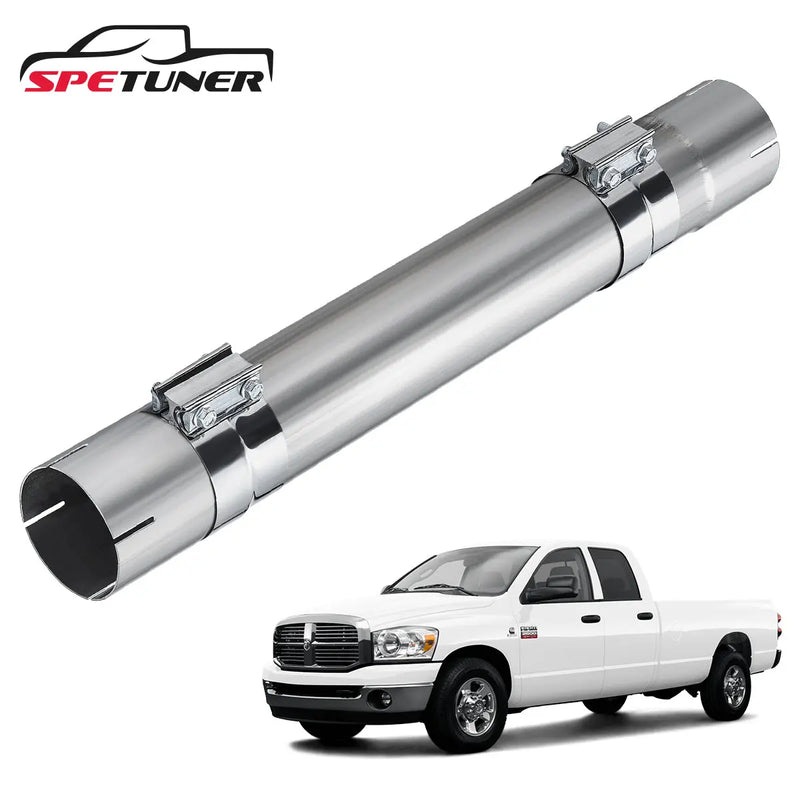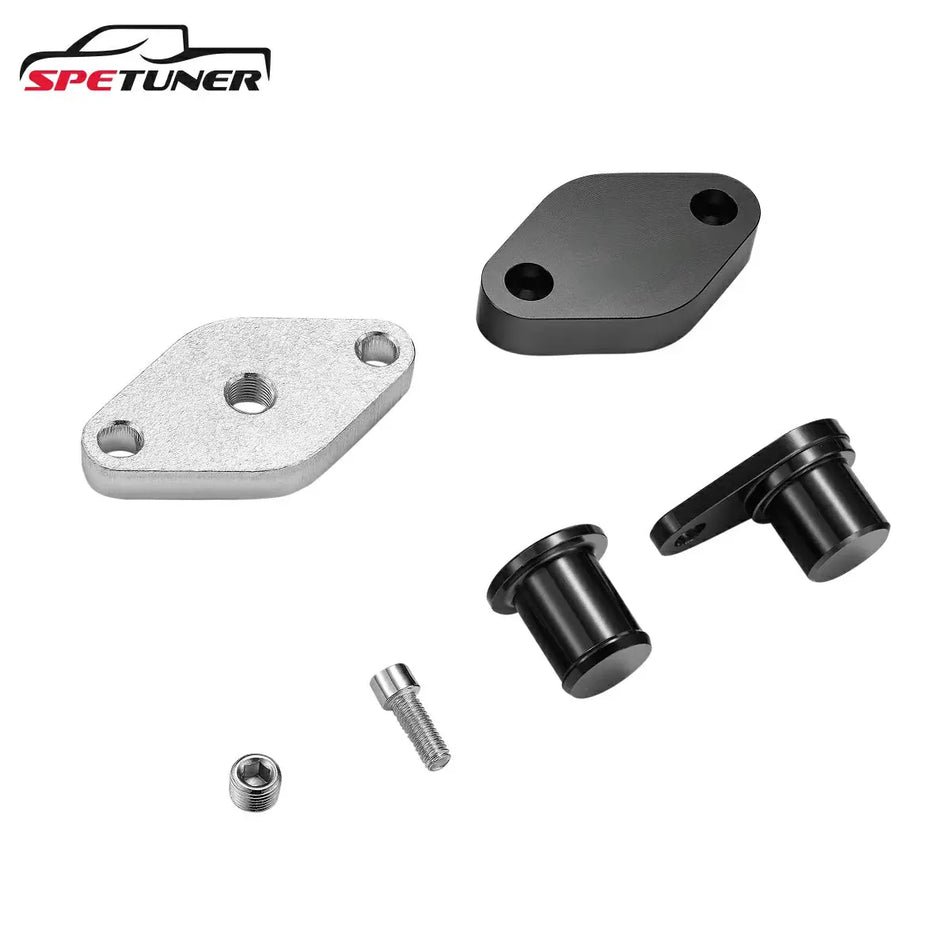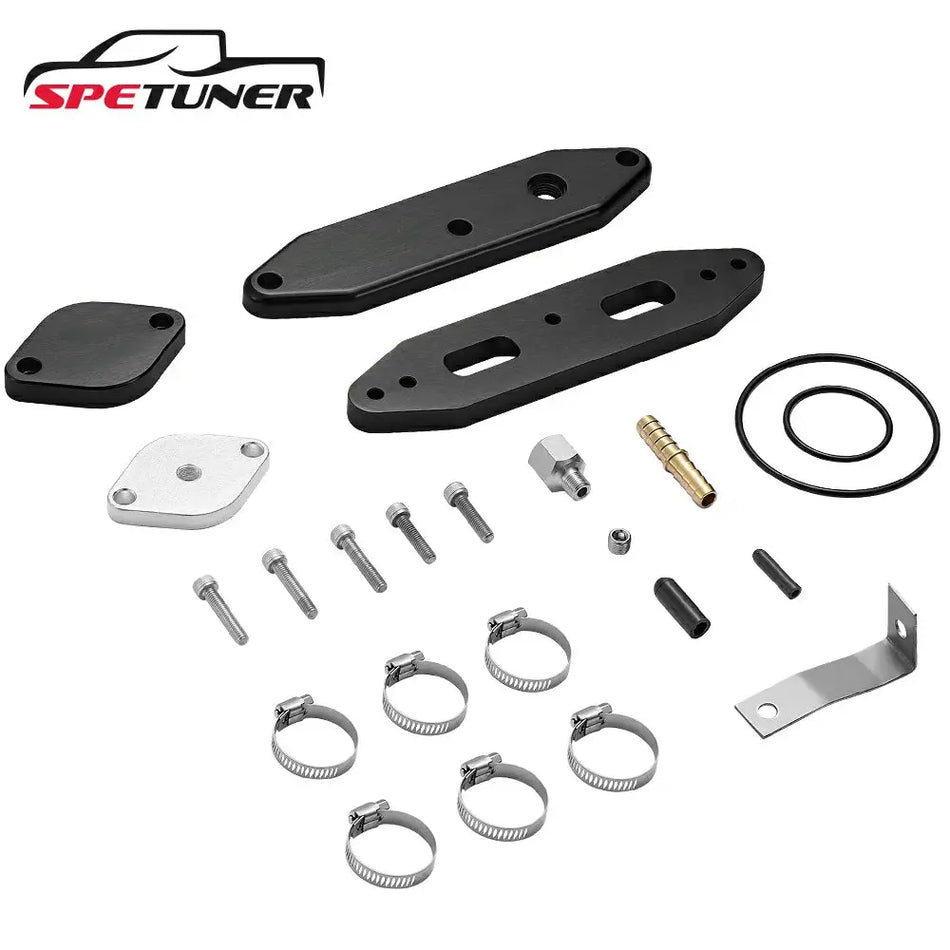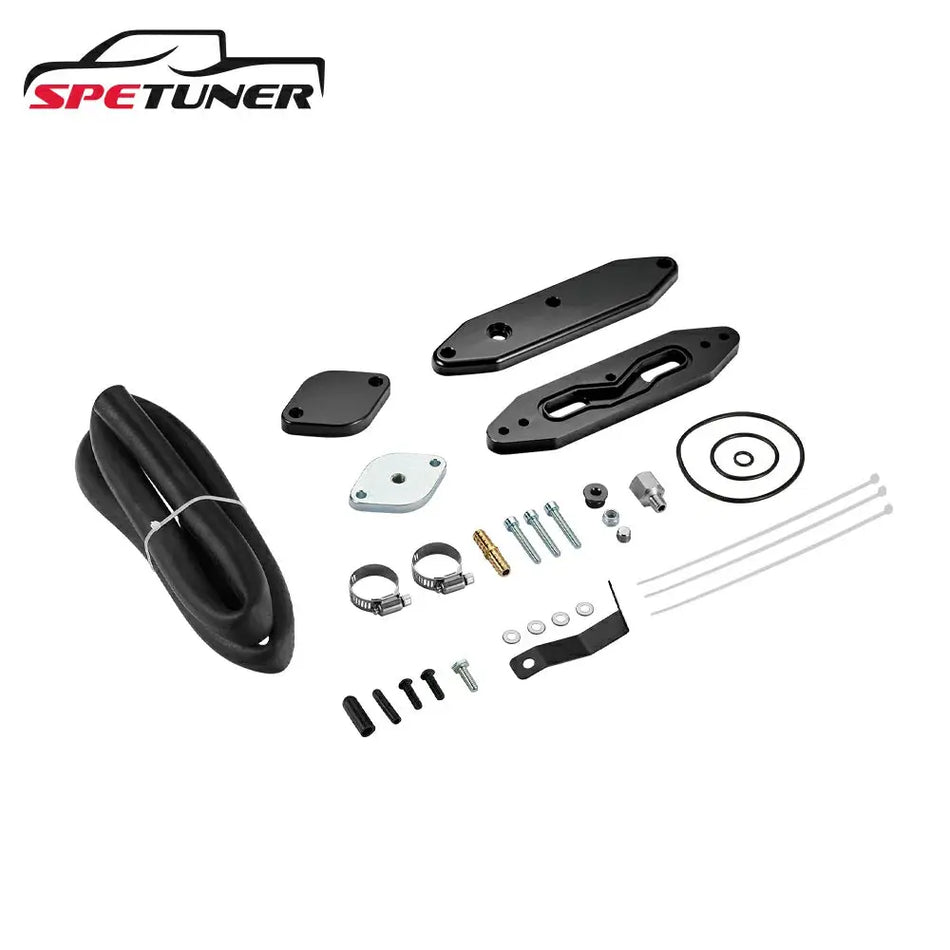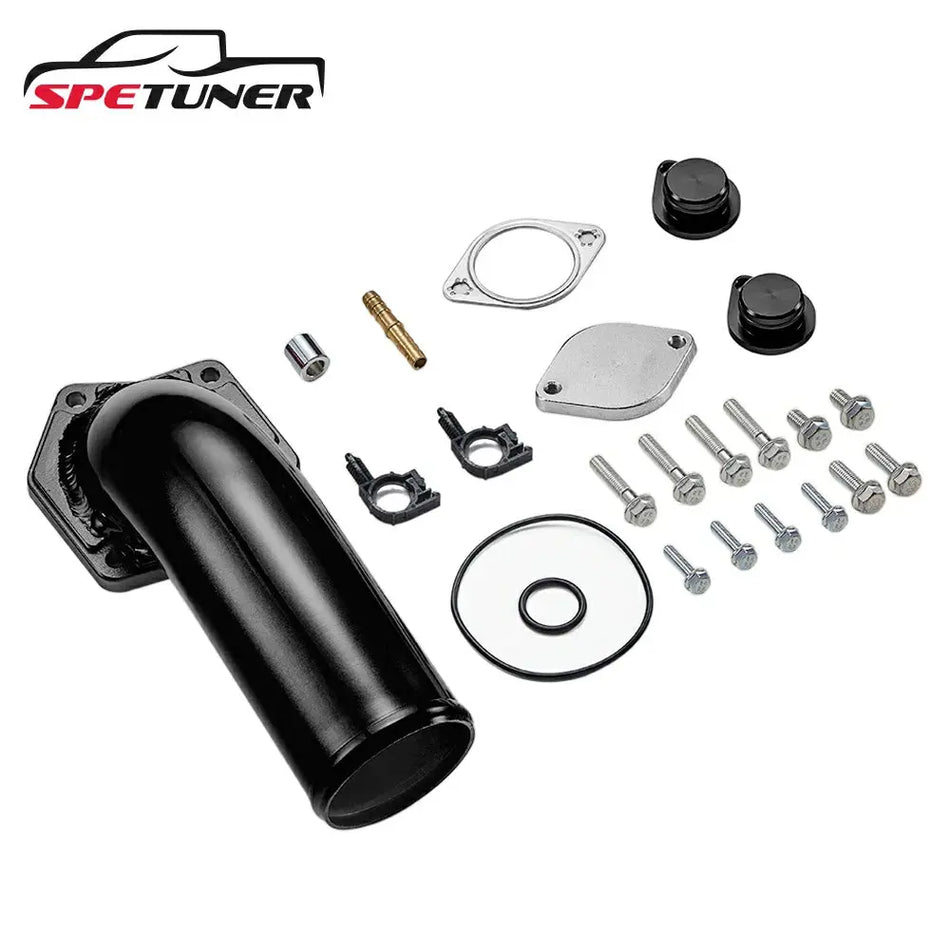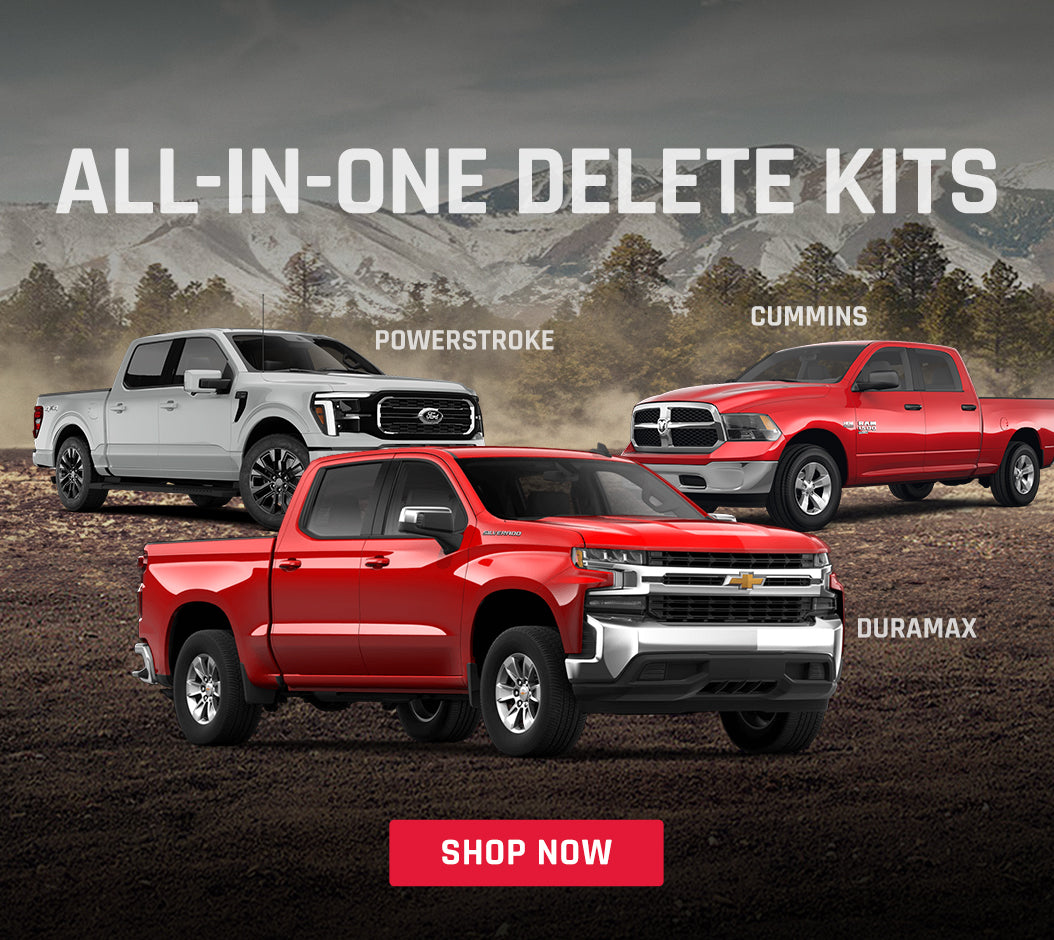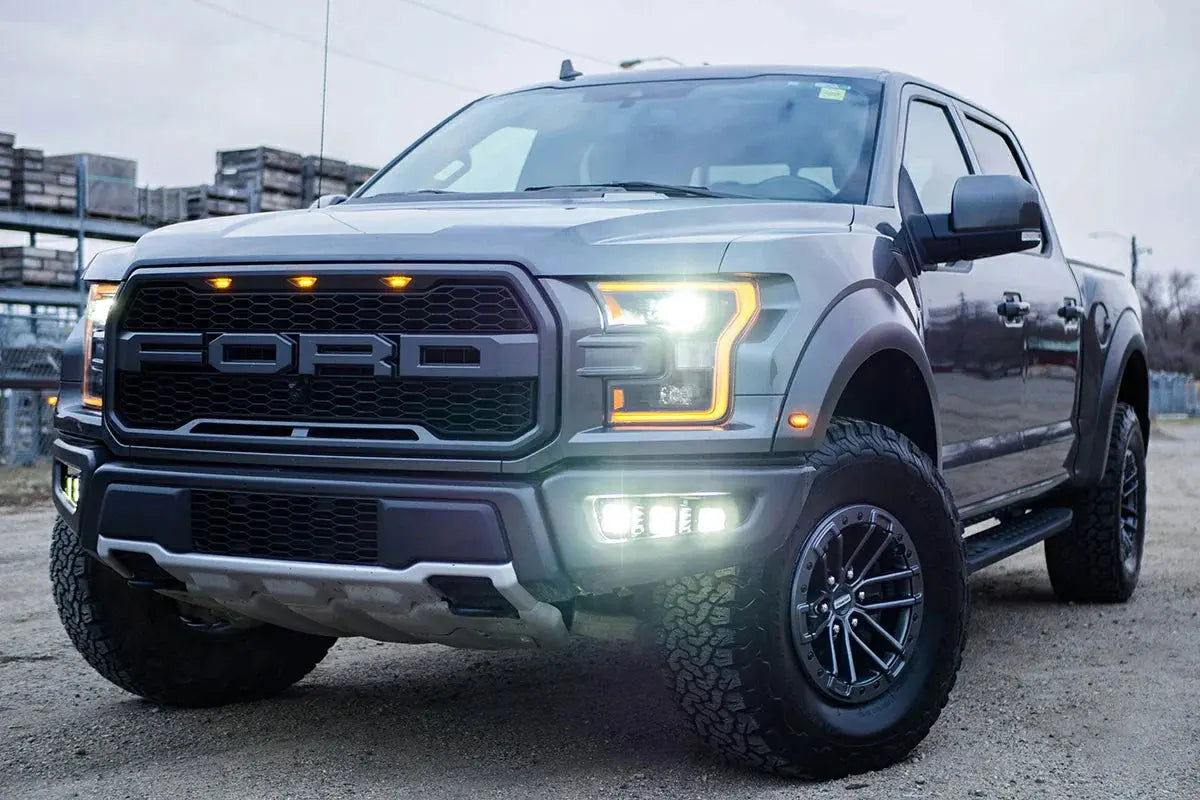If you're running a diesel truck—especially a Powerstroke, Cummins, or Duramax—you've likely debated the "muffler delete." You see trucks roaring down the highway, sounding aggressive, and you wonder: Are they getting more power than me?
Does a muffler actually reduce horsepower? We’re going to cut through the forum rumors and look at the real-world data, specifically for towing and daily driving setups.
What Does a Muffler Actually Do?
The Role of a Muffler in Diesel Exhaust Systems
Before we talk about gains, we need to understand the restriction. The main purpose of a stock muffler is to dampen sound waves using internal chambers, baffles, or perforated tubes. Its job is to keep your truck within legal noise limits and comfortable for passengers.
In modern diesel systems, the muffler is the final piece of the puzzle. Unlike the Diesel Particulate Filter (DPF) or Catalytic Converter—which are major restrictions for emissions purposes—the muffler is relatively free-flowing. It shapes the sound and creates a small amount of backpressure, but it isn't the primary "cork" in your exhaust system.
Muffler vs. Backpressure: The Turbo Factor
There is a massive misconception carried over from gas engines to diesel engines regarding backpressure.
- Naturally Aspirated Gas Engines: Often need a specific amount of backpressure (scavenging) to maintain low-end torque.
- Turbo Diesel Engines: Operate differently. The turbocharger itself creates backpressure. Post-turbo, the best exhaust is no exhaust. The faster you can get gases out of the tailpipe, the faster the turbo can spin (spool).
While a stock muffler adds some resistance, does removing it unlock massive power? Let's look at the numbers.

Does Removing the Muffler Increase Horsepower?
Dyno-Tested Results: The Numbers Don't Lie
Many truck owners pull the muffler expecting a 20HP gain. Unfortunately, the dyno tells a different story.
In a recent comparison featuring a 5th-Gen diesel truck with a tow tune, the results were almost identical:
- Straight Pipe (Muffler Deleted): 390 Horsepower
- Stock Muffler (Closed System): 386 Horsepower
The Result? A difference of 4 HP is within the "margin of error" for a dyno. You will not feel a 4 HP difference in a 7,000lb truck.
If It Doesn't Add HP, Why Does It Feel Faster?
If the dyno says "no gain," why do drivers swear their truck feels faster after a delete? Two reasons:
- Sound Perception: A louder truck triggers a psychological response. The aggressive roar makes acceleration feel more intense.
- Throttle Response (Turbo Spool): This is the real mechanical benefit. While peak horsepower doesn't change, removing the restriction allows the turbo to spool up slightly faster. This reduces "turbo lag," making the truck feel snappier off the line, even if the total power output is the same.
Beyond Horsepower: MPG and EGTs
If you aren't doing it for horsepower, why do people delete their mufflers? There are two hidden benefits that matter more to towing drivers than peak HP.
1. Lower EGTs (Exhaust Gas Temperatures)
This is critical for towing. When you are pulling a heavy load up a grade, heat builds up in the engine. A restrictive stock muffler holds that heat in. A straight-pipe delete allows hot air to escape faster. Lower EGTs mean your engine runs cooler and safer under heavy load, potentially extending the life of your motor.
2. Does a Muffler Delete Improve MPG?
Theoretically, yes. Reducing restriction improves engine efficiency. However, in the real world, most drivers see no change or a slight decrease in MPG.
Why? Because the truck sounds so good, you tend to step on the throttle harder to hear the turbo whistle! If you can keep your foot out of it, you might see a negligible (0.5 MPG) gain, but don't perform this mod expecting to save a fortune on fuel.
Towing with a Muffler Delete: The Drone Warning
Before you grab a sawzall or a delete pipe, you need to consider the "Drone Factor."
Drone is a resonant frequency that vibrates through the cab at cruising speeds (usually 1,800–2,000 RPM). While a muffler delete sounds amazing at idle and wide-open throttle, it can become a headache during a 6-hour highway tow.
- Daily Driving: Usually fun and manageable.
- Heavy Towing: The engine stays under load constantly, meaning the exhaust is constantly loud. If you tow family campers often, consider if your passengers will appreciate the extra noise.
The Best Way to Delete Your Muffler
If you want the benefits—lower EGTs, faster spool, and aggressive sound—don't hack up your exhaust with poor welds. Use a dedicated, mandrel-bent replacement pipe.
Recommended: SPETUNER Stainless Steel Delete Pipe
We recommend the SPETUNER 30” Muffler Delete Pipe. It is designed to replace the stock muffler directly without requiring you to build a whole new system.
Why this pipe works:
- T304 Stainless Steel: Won't rust out after one winter like aluminized steel.
- Mandrel Bent: No crinkle bends that restrict flow.
- Universal Fit: Available in 4" and 5" to match your current exhaust.
Final Verdict: Should You Remove Your Muffler?
So, does a muffler reduce horsepower? Technically yes, but practically no. The restriction is so minor on a stock or "tow-tune" truck that removing it won't make you faster in a drag race.
However, you SHOULD consider a muffler delete if:
- You want to lower EGTs for safer towing.
- You want quicker throttle response (turbo spool).
- You want that signature deep diesel sound.
You SHOULD NOT do it if:
- You are looking for massive horsepower gains (buy a tuner instead).
- You drive long distances with noise-sensitive passengers.
- You live in an area with strict noise ordinance inspections.
Frequently Asked Questions
A: In most diesel trucks, especially when tuned for towing, a muffler has minimal impact on horsepower. Real dyno tests show only a 2–4 HP variation between open and closed muffler setups — well within the margin of error.
Q: Do mufflers reduce engine power?A: Stock mufflers may slightly restrict exhaust flow, which could lead to minor power loss at higher RPMs. But in everyday towing use, this reduction is usually not noticeable or significant.
Q: Does a muffler delete gain horsepower?A: Not really. Deleting your muffler may make your truck sound more aggressive, but dyno tests show no measurable horsepower gain unless you're pairing it with turbo upgrades, tuning, or other delete kits.
Q: Do mufflers affect engine performance?A: Mufflers primarily affect sound and exhaust flow, not core engine output. On turbo diesels, less restriction can help spool up, but the muffler alone won’t significantly change performance.
Q: Does a muffler add HP?A: No. Removing the muffler might reduce backpressure slightly, but in most setups, it does not translate into a real horsepower increase unless the system was already highly restrictive.
Q: Can a muffler affect acceleration?A: In extreme cases, a highly restrictive muffler could blunt throttle response. But for most diesel trucks, especially when tuned properly, acceleration feels the same with or without a muffler.
Q: Is a muffler delete good for towing?A: It depends. A muffler delete can help with EGT management and exhaust flow, but it also increases cabin drone, which can be exhausting on long hauls. Many towing drivers prefer a switchable or quiet setup for comfort.
Q: Will removing the muffler make my truck louder?A: Yes — significantly. Muffler delete results in a deep, aggressive exhaust note, especially under load. Great for sound, but not always ideal for passengers or quiet zones.
Q: Can I pass inspection without a muffler?A: In many regions, no. States like California and provinces like BC require a muffler to be road legal. Running a delete pipe might lead to tickets or inspection failure if not swapped out.
Q: What’s the best muffler delete pipe for diesel trucks?A: A stainless steel, mandrel-bent pipe like the SPETUNER 30" Muffler Delete Pipe is ideal. It fits most diesel platforms, resists corrosion, and provides unrestricted flow for towing or tuned setups.
Q: Will a muffler delete cause a Check Engine Light (CEL)?A: Generally, no. The muffler is located after the DPF and sensors on most modern diesel trucks. Removing it usually does not trigger a code, unlike removing a catalytic converter or DPF. However, always check your specific model year.
Q: Does a muffler delete void my warranty?A: It's a gray area. Dealerships cannot void your entire warranty because of a muffler, but they can deny a warranty claim if they can prove the modification caused the failure (e.g., an exhaust issue). It is generally considered a low-risk modification compared to tuning.
Q: Does a muffler delete improve fuel economy (MPG)?A: You may see a very small improvement (0.5 to 1 MPG) due to reduced exhaust restriction, but most drivers see no change because the aggressive sound encourages heavier acceleration.
Q: What is the difference between a straight pipe and a muffler delete?A: They are essentially the same thing. A "muffler delete" usually refers to replacing just the muffler with a pipe, while keeping the rest of the exhaust stock. A "straight pipe" often implies a full system replacement from the turbo back, with no mufflers or resonators.

